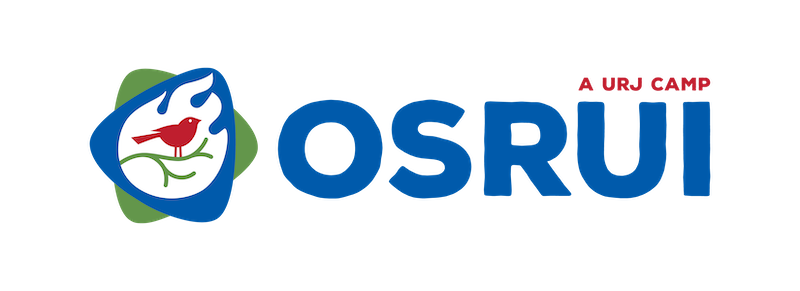Shalom from OSRUI! Every year, more than 50 Rabbis, Cantors, and Educators who spend time with us at camp in the summer. They work closely with the Rashei Eidot (unit heads) to create fun Jewish experiences that are educational and engaging. Today we are joined by Rabbi Adam Stock Spilker as he teaches us about the message from this week’s Torah Portion, Balak.
This year my role on faculty at OSRUI was to be “at large” and not attached to a specific eidah (unit). That meant I was able to be with all the eidot throughout the week, from those living in tents to those in cabins. And I have to say: ma tovu, how good things are at OSRUI this summer!
Ma tovu. These are the words of praise that emerged from the lips of Balaam as he observed the Israelites in Parashat Balak.
מַה־טֹּ֥בוּ אֹהָלֶ֖יךָ יַעֲקֹ֑ב מִשְׁכְּנֹתֶ֖יךָ יִשְׂרָאֵֽל׃
How good are your tents, O Jacob, Your dwellings, O Israel! (Numbers 24:5)
The prophet-for-hire was supposed to curse the Israelites on behalf of the Moabite king, Balak, but again and again in this long narrative, Balaam could only speak what God intended.
Two millennia ago, the early rabbis thought of “tents” as Jacob’s study hall. In Genesis, Jacob is described as “a quiet man, a dweller in tents” (25:27) who studies unlike Esau who hunts. They thus put Balaam’s words of praise in the prayerbook and into our mouths to be sung as we enter the synagogue (study hall) for morning services. But in the summer, we take this verse more literally. Like Balaam standing on a mountain and seeing–according to 11th century commentator Rashi–that the tents are arranged to reflect the moral character of the Israelites (there is privacy and respect for each other’s space), at OSRUI the “downstairs” tents (Moshava, Kibbutz HaTzofim) and the “upstairs” dwelling places/cabins (Kallah, Gesher, Chalutzim, Avodah) are also “good,” arranged with supervision and schedules to ensure a safe, values-based summer.
But is everything truly “good”?
The rabbis brilliantly juxtaposed a prophetic text from Micah with this Torah portion:
הִגִּ֥יד לְךָ֛ אָדָ֖ם מַה־טּ֑וֹב וּמָֽה־יְהֹוָ֞ה דּוֹרֵ֣שׁ מִמְּךָ֗
[God] has told you, O mortal, what is good, And what Adonai requires of you: Only to do justice And to love mercy, And to walk modestly with your God. (Micah 6:8)
Balaam’s statement that the Israelites are already good doesn’t challenge them to be better. Some praises are platitudes that lead to complacency and, at worse, do not reflect reality. Micah challenges the Israelites with the same phrase as Balaam but makes it aspirational. We need to create the good for the world as it might be, not as it is.
Micah’s words are etched in stone outside the former building of the URJ in New York, a symbol for our movement’s purpose in the public. At OSRUI, madrichim (counselors) and segel (faculty) are helping all the chanichim (campers) to not be satisfied with the status quo. This week’s theme across camp has been: “Lech lecha/Go and be bold: Follow the courageous move of our ancestor Abraham to respond to a calling and do what is right, even if it is not the typical, popular path.” (Miriam Heller Stern (2019) Jewish Creative Sensibilities: Framing a New Aspiration for Jewish Education, Journal of Jewish Education, 85:4, 429-446,)
With these teachings, all will return home, we pray, inspired to model Micah’s call for the good. They also need Balaam’s praise ma tovu. We all need to hear that we are already good, especially during a pandemic, especially in a volatile, uncertain, changing, and ambiguous world.
It truly has been a good summer so far… and next year will be better.

Rabbi Adam Stock Spilker has served Mount Zion Temple in St. Paul, Minnesota for the past 25 years. In his 11th summer on Segel (faculty)!
